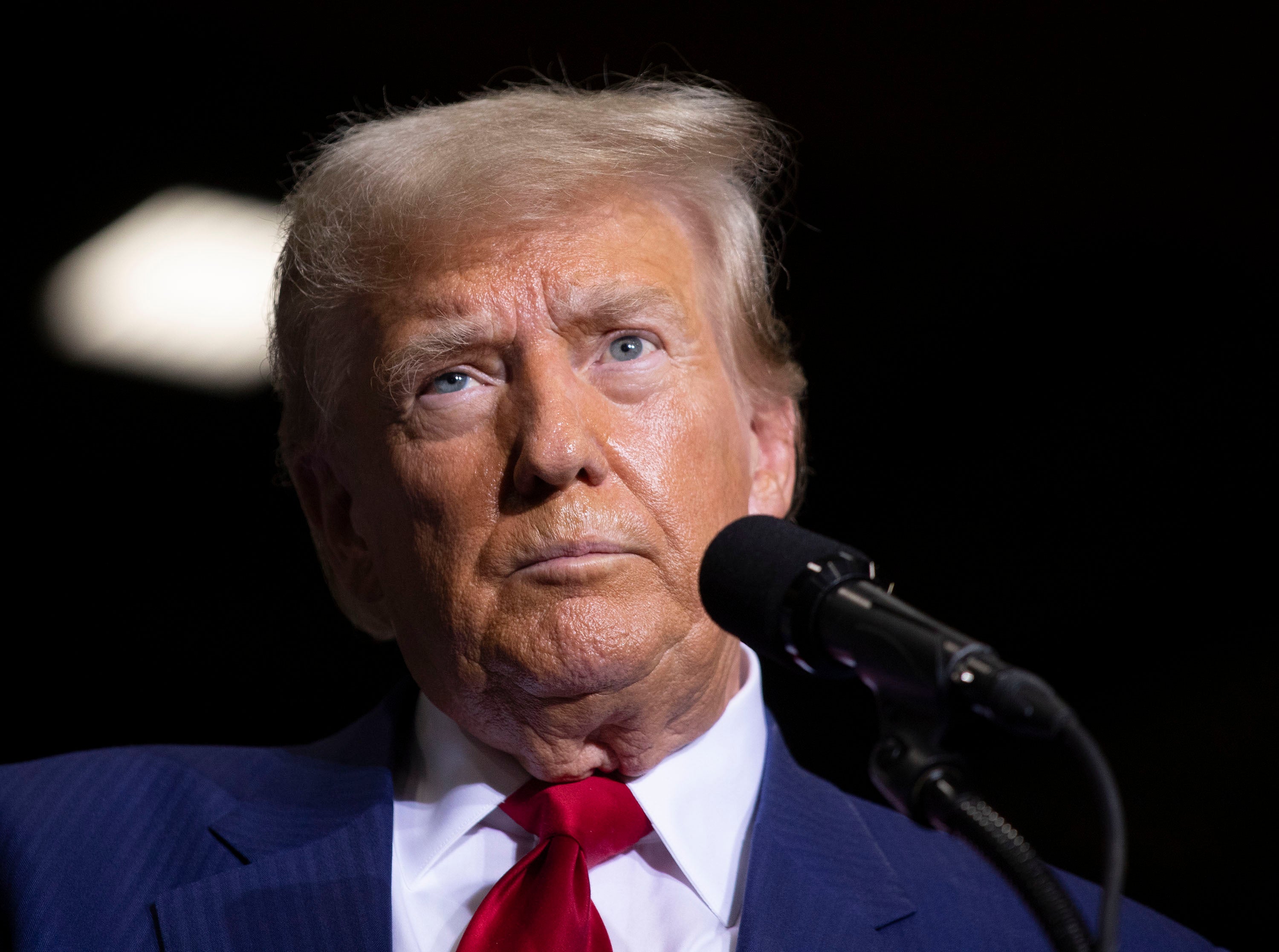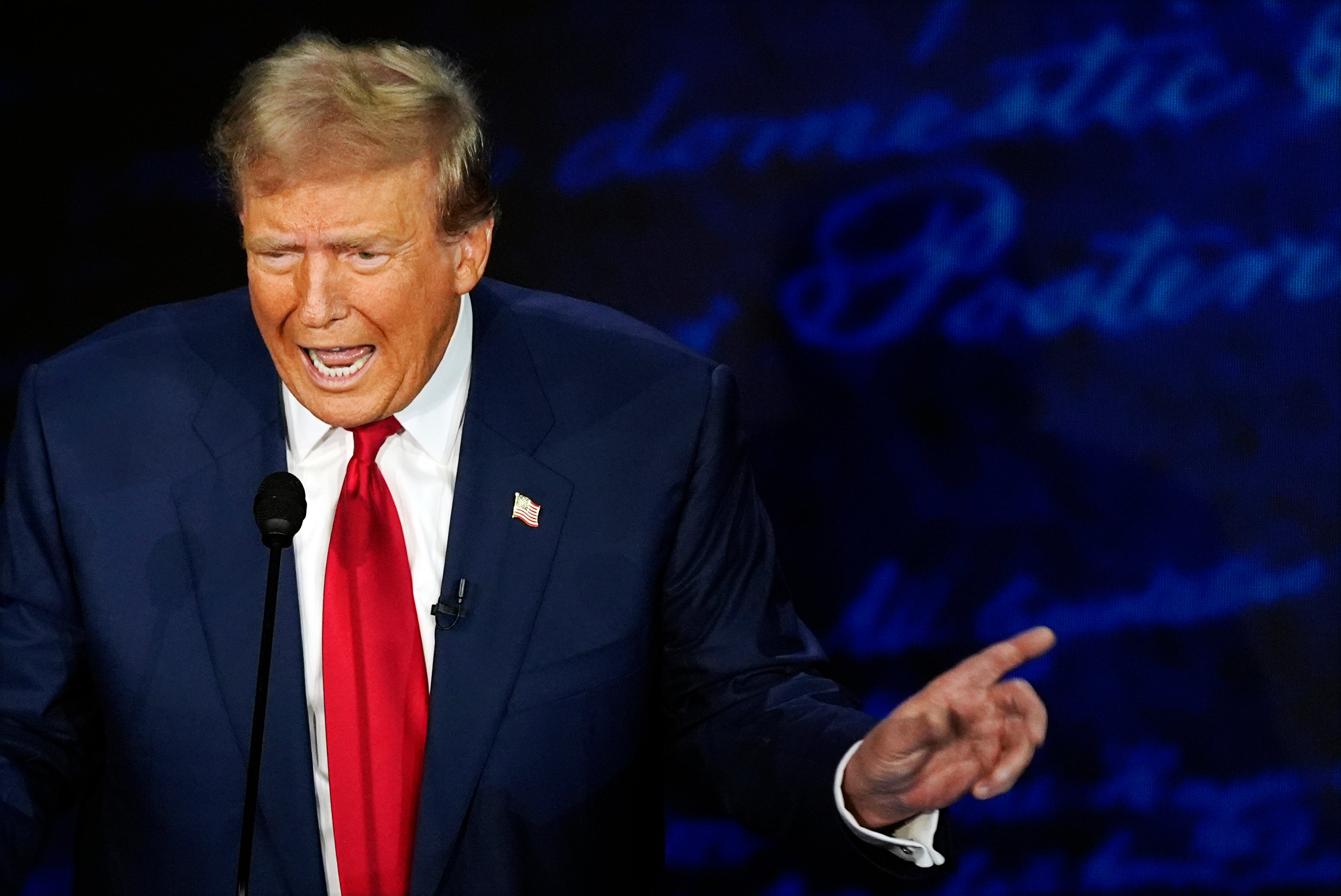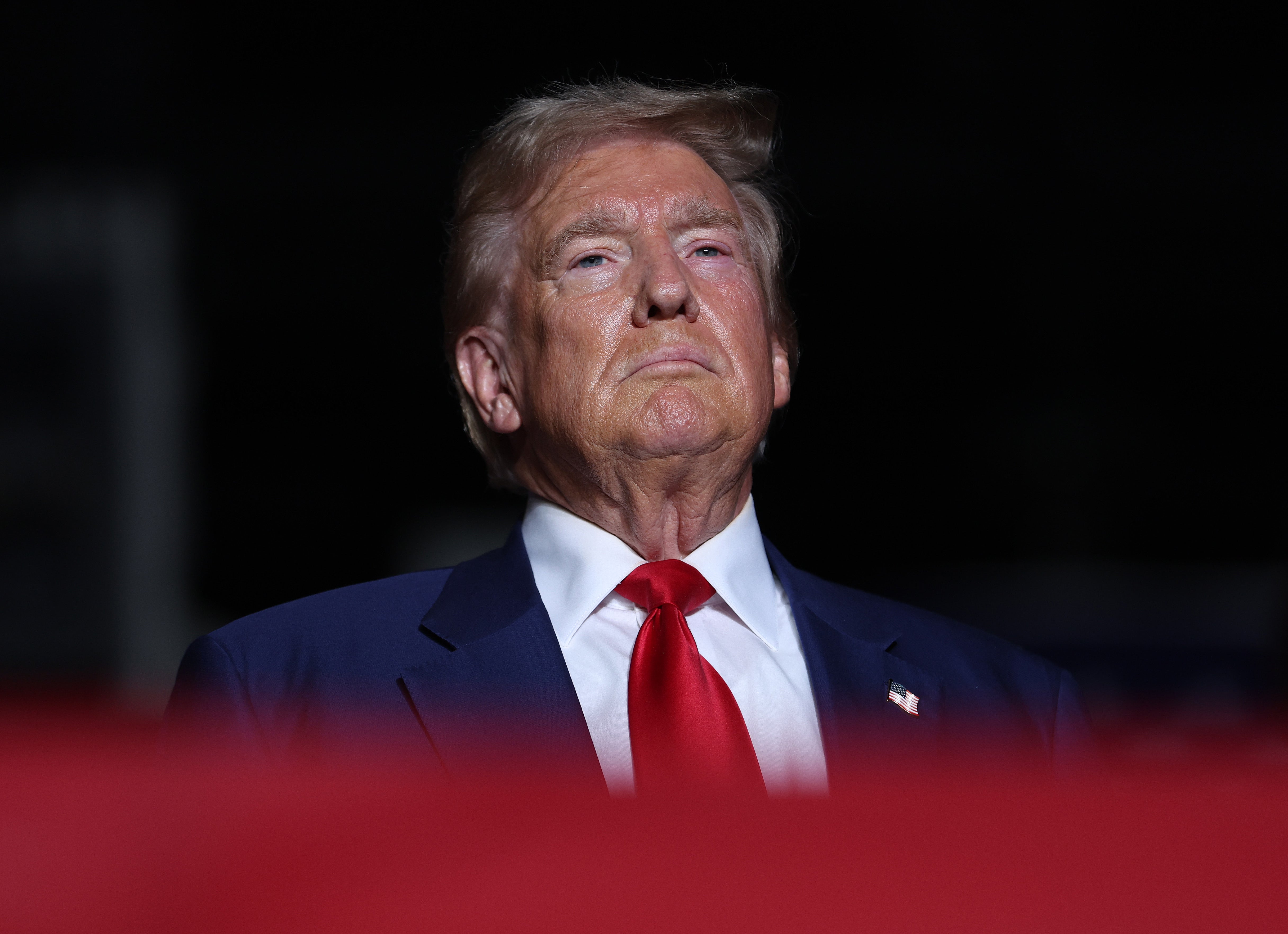Mental health experts sound the alarm on Trump’s potential ‘cognitive decline’ as he’s ‘lost touch with reality’
Exclusive: After President Biden’s cognitive decline was heavily scrutinized, mental health experts tell The Independent they have similar concerns about Trump
Your support helps us to tell the story
As your White House correspondent, I ask the tough questions and seek the answers that matter.
Your support enables me to be in the room, pressing for transparency and accountability. Without your contributions, we wouldn't have the resources to challenge those in power.
Your donation makes it possible for us to keep doing this important work, keeping you informed every step of the way to the November election

Andrew Feinberg
White House Correspondent
Leading mental health experts, including a former White House doctor, have expressed alarm over Donald Trump’s mental faculties, suggesting he’s showing signs of “cognitive decline.”
Several experts told The Independent their concerns about the Republican presidential nominee are similar to those they had about President Joe Biden before he dropped out of the race, warning Trump appears to “have lost touch with reality,” as exhibited by the 78-year-old’s “rambling” speeches and “erratic” debate performance.
They join a growing number of mental health professionals calling for independent and objective cognitive testing as November’s election edges closer.
Biden, 81, faced a deluge of questions about his mental fitness for another four years in office following his disastrous debate against Trump in June when he repeatedly stumbled over his words and trailed off. Now, all eyes are on Trump, who is prone to incoherent tangents and bizarre musings.
That was on full display at Monday night’s rally in Pennsylvania, where Trump was mocked for his “word salads.”He said of Kamala Harris: “She had the other interview with the other guy who was a nice guy I think from Philadelphia from Pennsylvania, he was a nice guy, he was asking her all these [inaudible] — the daily take — they don’t take like I do! Anybody wants to go, go what the hell differences they make — they have — and how dishonest was ABC...”
But Trump insists he is “cognitively very strong.”

Earlier this month a professor of psychiatry at Weill Cornell Medical College, Richard A. Friedman, said he was “alarmed” by what he witnessed during Trump’s debate performance on September 10. In an op-ed for The Atlantic, he said Trump “displayed some striking, if familiar, patterns that are commonly seen among people in cognitive decline.”
Dr. Ben Michaelis, a clinical psychologist who has previously carried out cognitive assessments for the New York Supreme Court, agrees. He told The Independent that Trump is “really not in a strong cognitive place.”
Michaelis — who stressed he has not examined Trump in person and could not offer any formal diagnosis — watched the former president’s debate against Kamala Harris earlier this month, noting that it started at 9 p.m.
“There’s a term when you’re talking about people with dementia called sundowning, it’s a lot harder for them as the day goes on,” he said, suggesting it appeared Trump could have been experiencing those symptoms.
“It’s very difficult for them to maintain focus on a topic,” he continued. “The idea of being able to maintain that level of focus for that amount of time, that late in the day…you wouldn’t think twice about it if that was your grandfather. It’s just he happens to be running for president.”
When it comes to Trump’s rambling speeches, where he has often veered from one unrelated topic to another, Michaelis said it struck him as “logorrhoea” — the Greek word meaning excessive talking — which can be associated with dementia.
An example of this was at a speech in Potterville, Michigan, where Trump leapfrogged from talking about how he lost billions of dollars in San Francisco to where he ranks in a list of “horribly” treated presidents. In another speech, he began talking about bacon and within a minute had moved on to wind turbines.
Trump has addressed his tendency to venture off topic, bragging about what he calls “the weave.”

“When I do the weave...I’ll talk about nine different things and they all come back brilliantly together,” he said. “Friends of mine that are English professors, they say: ‘It’s the most brilliant thing I’ve ever seen.’”
But the experts don’t agree. “It’s excessive incoherent talking,” Michaelis said.
“Again, I am not diagnosing him with anything, but it can be a symptom of significant mental illness or dementia. [It is] that inability to maintain focus and to move in a sort of tangential way from topic to topic.
“If you’re observing him, [the topics] don’t seem at all connected but they may have some random connection in his mind, that’s what seems to be happening.”
Allen Frances is a professor and the chair emeritus of psychiatry at the Duke School of Medicine as well as the architect of the DSM-IV — the manual for diagnostic criteria of a range of mental disorders.
Frances is “very much opposed to the misuse of the diagnostic system,” and in 2016 he did not believe Trump displayed symptoms of a mental health disorder.
But, from what he has observed from afar, Frances told The Independent he believes the dial has now shifted, and it is likely Trump “has deteriorated a great deal” since he was in office.
“First off, he seems pretty incoherent,” he said. “It’s hard for him not to be tangential, circumstantial, not to stay on message. He’s all over the place.”
Frances cited examples of unfounded claims Trump made in the debate: that babies are “being executed” after birth, schools are performing surgery on children, and Haitian immigrants are eating pets. “The things he’s saying suggest he’s really lost touch with reality,” he said. “It seems to me likely — although we can’t be definitive about saying anything about anyone at a distance — it seems likely he has deteriorated a great deal.”
The psychiatrist, who conceded there is a possibility Trump’s behavior can also be explained as a deliberate attempt to appeal to specific voters, argued there should be “an upper age limit” for candidates running for the presidency.

Former White House physician Dr. Jeffrey Kuhlman, who has cared for Presidents Obama, Bush, and Clinton, agrees there should be a cap on the age of presidential candidates if they will not agree to undergo objective cognitive assessments.
“We don’t let you be an airline pilot because of public safety past the age of 65, we don’t let you be an FBI agent past the age of 57,” he told The Independent. “[The President] has the most powerful position in the free world.”
Kuhlman, who has never medically examined Trump, said independent cognitive testing would provide a “much better objective picture” of whether a candidate has some cognitive decline — which he added everybody has to some degree after the age of 60 — or if there is a presence of progressive dementia.
Dementia is more common for those in their eighties, “which Donald Trump will be in about a year and a half,” Kuhlman notes.
A cognitive assessment tests a person’s vocabulary, spatial visualization, reasoning, memory and speed. “So we know the vocabulary usually stays about the same, but those other four drastically start falling off past the age of 70,” Kuhlman explains.
Kuhlman — whose bookTransforming Presidential Healthcare: Ensuring Comprehensive Care for the Commander in Chief Amid 21st Century Threats is out now — concurs with the observations of his peers.
“If you listen to the debate, or if you listen to his speech every day, what’s missing is reasoning or that critical decision making,” he said.
The Independent has contacted the Trump campaign for comment.
Subscribe to Independent Premium to bookmark this article
Want to bookmark your favourite articles and stories to read or reference later? Start your Independent Premium subscription today.

Join our commenting forum
Join thought-provoking conversations, follow other Independent readers and see their replies
Comments